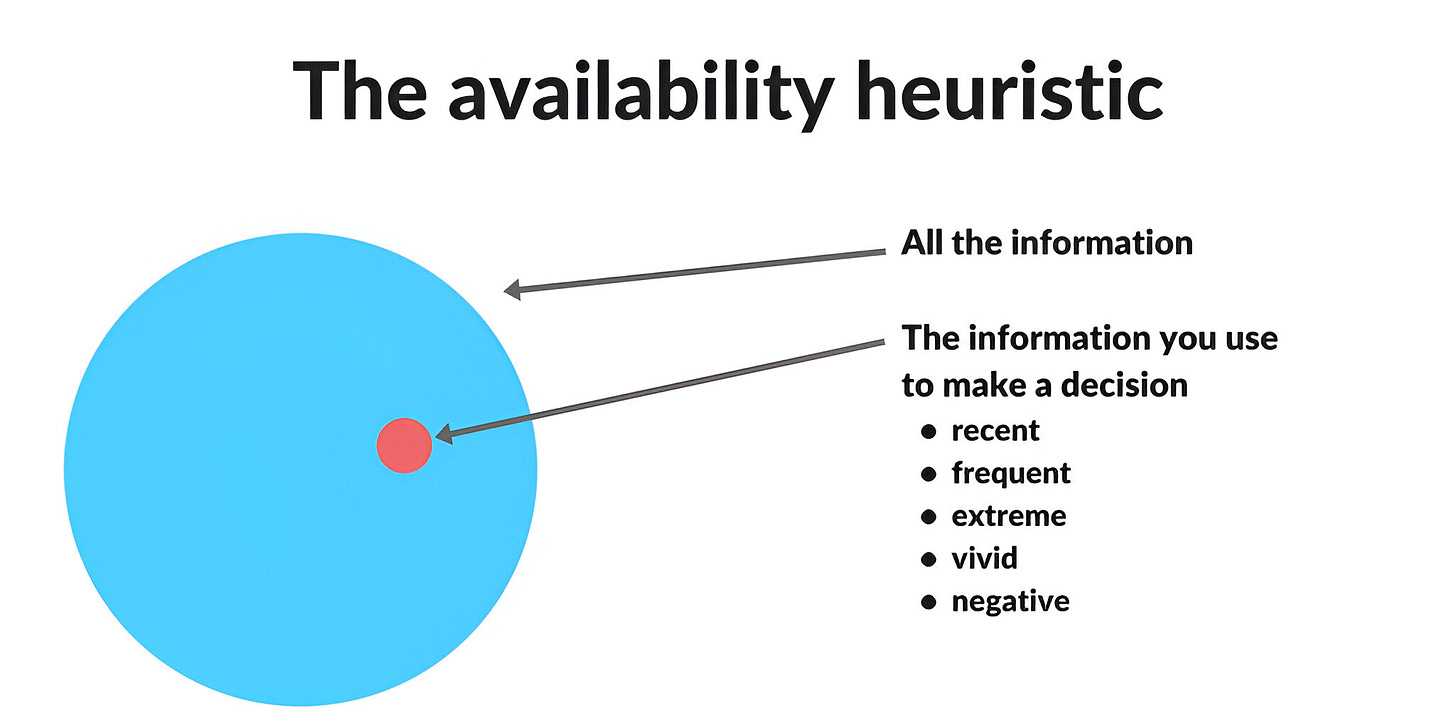Issue #25: You’re Not Behind – Why Everyone SEEMS to Have More Money Than You
Not everything is as it seems. The numbers tell a different story. The wealth, the success, the happiness—it might all be an illusion.
Reading time: 5 minutes
Some guy, under 30, just sold his startup for $100 million.
A random 20-year-old is set for life because he bought Bitcoin when he was 12.
Some girl on OnlyFans is making millions selling NSFW pics.
Another 20-year-old was smart enough to "find his passion for coding" when he was young, and now he’s pulling in $110K a year working at Microsoft.
Your old college roommate is posting vacation photos from the Maldives again.
Your neighbor just bought a new Porsche.
Meanwhile, you’re sitting there, staring at your bank app, wondering how the hell you’re going to cover rent and still afford groceries. You work hard. You save when you can. But no matter what you do, it feels like everyone else has money raining from the sky while you’re stuck counting pennies.
It’s infuriating. It’s exhausting. And it feels personal.
But what if it isn’t? What if the wealth you’re seeing is an illusion? What if you’re not actually behind, but the world is set up to make you believe you are?
The Rich Are Everywhere—Or So It Seems
Social media is a curated highlight reel. People flex vacations, luxury cars, expensive dinners, everything that screams success. But you never see the credit card debt, the late bills, or the sleepless nights over money.
A 2018 Pew Research study found that 26% of teens feel worse about their lives because of social media. The same applies to adults. Your feed isn’t reality. It’s a filtered version of success designed to make you feel like you’re missing out.
But let’s talk numbers.
If everyone were truly rich, why did the Federal Reserve report in 2023 that 37% of Americans couldn’t cover a $400 emergency?
Why did the UK’s Financial Conduct Authority report that 41% wouldn’t be able to cover three months of living expenses if they lost their job?
Why do nearly 80% of Japanese in their 20s and 60% in their 40s have less than ¥1 million (~$6,725) in savings?
Why could only 45% of Australians live off their savings for one month or less?
That’s not wealth. That’s survival.
Also, let’s return to what we discussed at the beginning.
According to the Small Business Administration, the odds of a single business reaching $1M/year in revenue are just 7%, and hitting $10M/year is only 0.4%.
If you had invested in Bitcoin early, chances are your coins would have been among the 7.56 million lost forever because you forgot your keys. Or you would have sold after a 5x or 10x gain, believing that was life-changing money. Almost no one held from $0.30, $1, $10, or $100 to $100,000.
Out of 4,118,000 OnlyFans creators in 2023, only about 300 make more than $1M/year (0.0073%), and 16,000 earn over $50,000 annually (0.39%). Not to mention that according to an Avery Center report, 34% of creators faced negative mental and physical health effects, including anxiety, depression, shame, and low self-esteem. Another 30% reported that the constant pressure to create content worsened their anxiety and depression.
Six-figure coding jobs look great on paper. In reality, most are in the U.S., where high taxes and insane living costs, especially in places like California, turn those salaries into just enough to get by. Some live paycheck to paycheck. And in most countries, 1 in 4 people either hate their jobs or feel indifferent toward them. Indifference isn’t any better. If you don’t care about what you do, you’re already halfway to hating it. In some cases, that number climbs to 1 in 2. Meanwhile, nearly 3 in 5 young adults say they lack meaning or purpose in life, unsure of what they’re even working toward.
The Mind Games of Money
Have you ever heard of relative deprivation? It’s the psychological effect of feeling poor when you compare yourself to someone richer. A 2012 meta-analysis found that this feeling lowers well-being, increases stress, and fuels resentment.
When you see someone post their new Rolex, your brain doesn’t think:
“Good for them.”
It actually thinks:
“Why don’t I have that?”
That’s how social media amplifies the illusion. It keeps you locked in a loop of unhealthy comparisons.
And it gets worse.
The availability heuristic, a cognitive bias identified by Tversky and Kahneman in 1973, tricks your brain into thinking something is common just because you see it often.
You scroll past 5 luxury vacations on Instagram, and your brain assumes everyone is rich, even though the guy posting those trips might be drowning in debt.
You walk by three Teslas in your neighborhood, and suddenly, you feel poor, never mind that the people driving them could be paying 15% interest on their loans.
The problem isn’t that you’re broke.
The problem is that you’ve been tricked into thinking everyone else isn’t.
The Way Out
Marcus Aurelius once wrote:
“…remember that all that lies within the limits of our poor carcass and our little breath is neither yours nor in your power.”
You can’t control who flaunts their wealth. You can control how you react to it.
Comparison is a poison. The moment you measure your life against someone else’s, you lose. Seneca warned about this centuries ago:
“It is not the man who has too little, but the man who craves more, who is poor.”
So stop chasing an illusion. Stop feeling behind because someone else seems ahead.
You are not behind. You are not failing.
"The happiness of your life depends on the quality of your thoughts." — Marcus Aurelius
Thank you so much for reading! See you next week.






